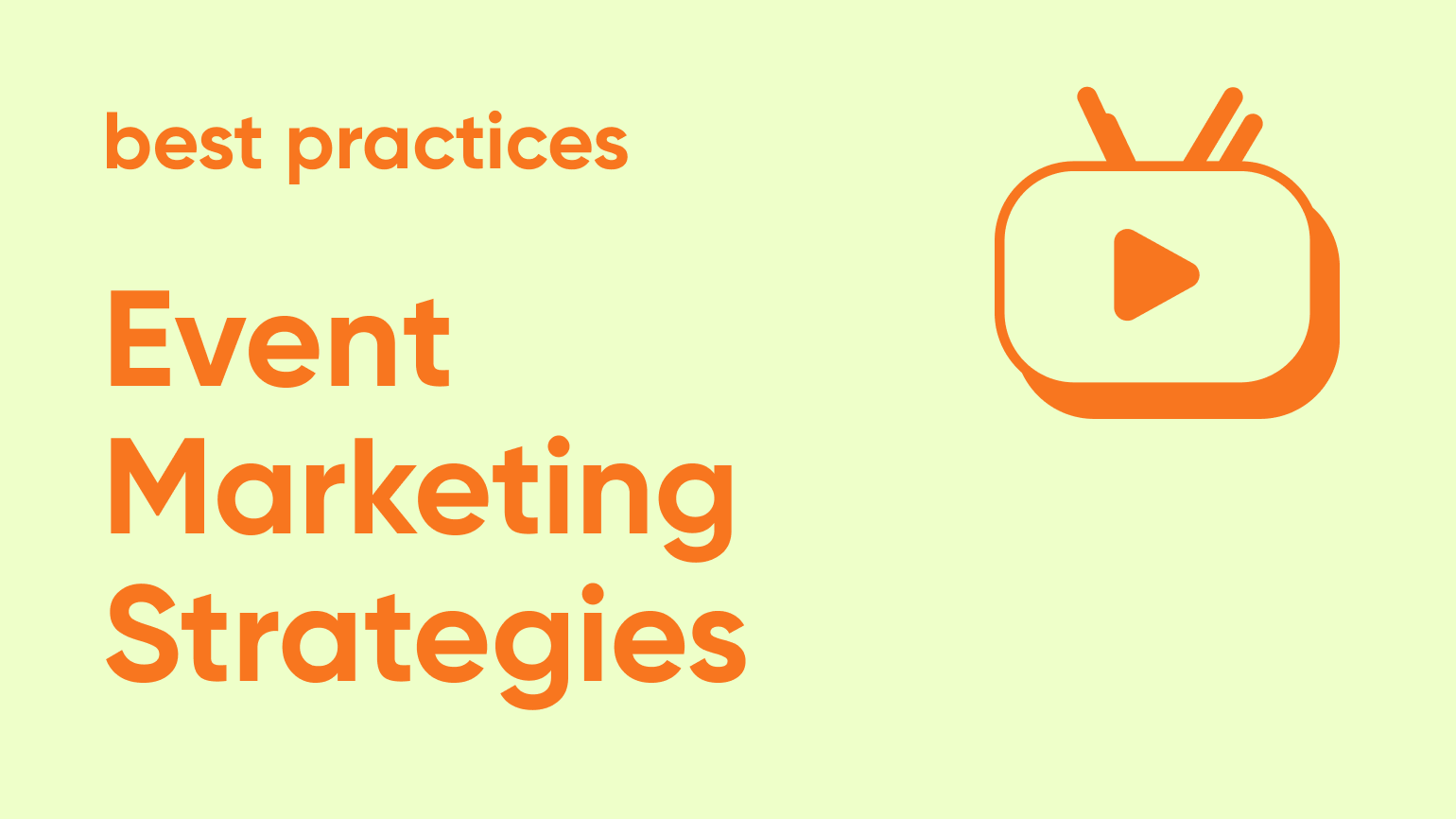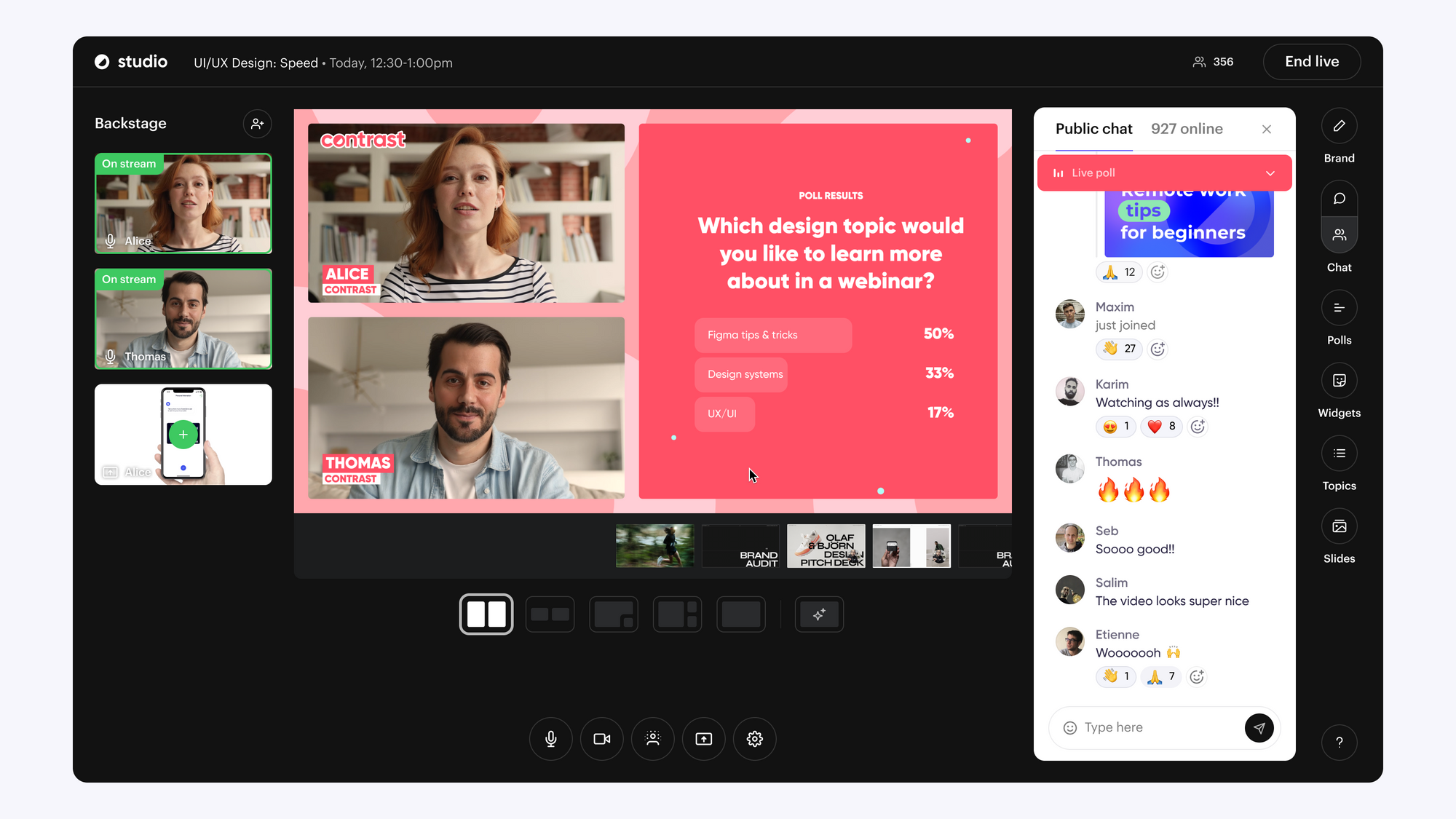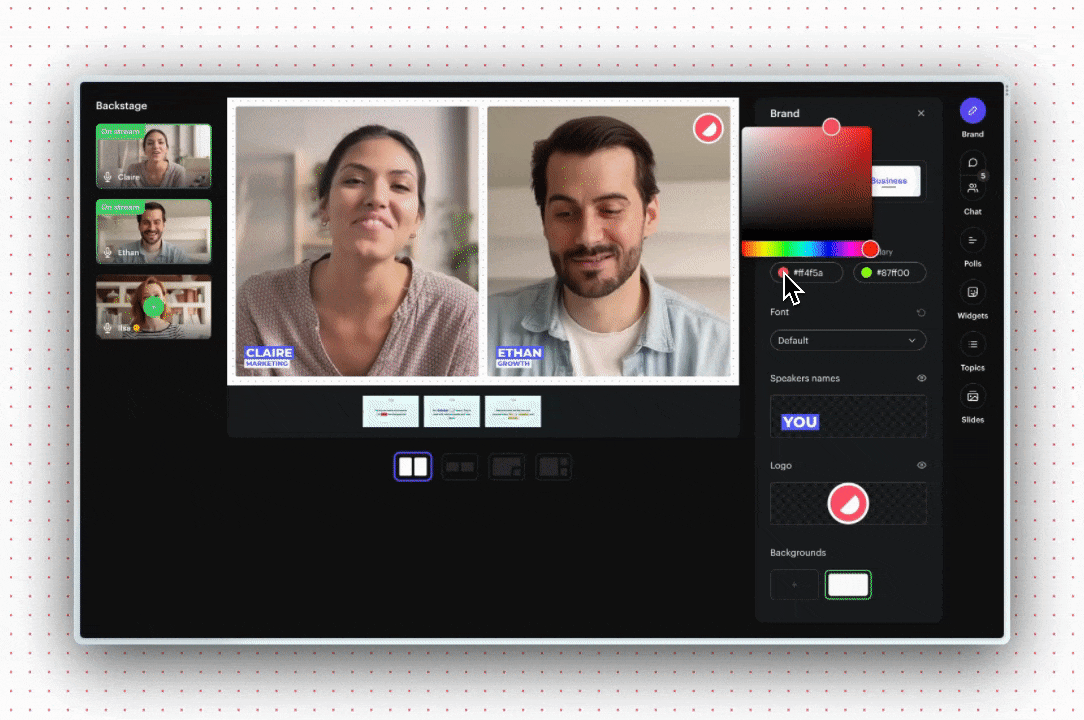The 2025 Guide to Your Event Marketing Strategy

Introduction
In 2025, an estimated 90% of marketers lean towards event marketing to shape their brand image. With numbers that loud, whether it’s seminars, trade shows, digital webinars or pop-up shops, it’s crucial we all pay attention. Welcome to your unforgettable tour of the most effective event marketing strategies of 2025. Your mastery over these strategies could be the difference between an empty-seated gig and an encore-demanding symphony. Let's fine-tune our understanding together, shall we?
Top 5 Event Marketing Strategies for 2025
- Get a front-row seat to the power of social media in event marketing.
- Learn the ropes of working with influencers for expanding event outreach.
- Explore the rise of virtual and hybrid events in marketing, thanks to the pandemic.
- Discover how personalizing events can lead to improved engagement.
- Dive into a data-driven approach for optimizing event marketing strategies.
Leveraging Social Media for Event Promotion
Social media platforms have become an integral part of event marketing. Platforms like Facebook, Instagram, or LinkedIn offer unprecedented reach, allowing businesses to leaverage social media to market their events to a global audience.
For example, Adobe Summit, a digital experience conference, has successfully used Twitter to build pre-event buzz. They utilized creative hashtag campaigns and regularly shared engaging, behind-the-scenes content. As a result, they amplified their event reach, roping in hundreds of thousands of potential attendees.
Utilizing Influencer Marketing
Influencer marketing is earning its place in event marketing. Influencers with a substantial online following can amplify your event promotion, garnering widespread attention and building brand trust.
Fashion Nova, an online clothing brand, used this tactic to promote their product launch events. They partnered with influential personalities on social media who had a strong connection with their target market. This collaborative marketing strategy saw remarkable success, with a significant surge in event attendance.
Incorporating Virtual and Hybrid Events
The recent pandemic brought a steep rise in virtual and hybrid events. With remote participation now a norm, businesses are reinventing their event marketing strategies to include these formats.
The Apple Worldwide Developers Conference (WWDC) is a prime example. Frequently attracting over 10,000 attendees, this event transitioned smoothly to a virtual format during the pandemic. Efficient tech setup and seamless execution ensured an engaging and valuable experience for attendees.
Personalizing Event Experiences
Personalizing event experiences and interactive events are the key to improved engagement. Tailored interactions and offerings based on individual preferences make attendees feel appreciated and important.
Salesforce’s Dreamforce Conference exemplifies such personalization. They analyze each attendee's interests and customize their experience accordingly. This targeted approach significantly enhances the event's value for each participant.
Using Data-Driven Marketing
Data-driven marketing is an integral part of modern event strategies. It provides insights into the event reach, attendee behavior, and engagement levels. Tracking the right KPIs for your virtual events will help you increase the ROI.

A case in point is how Google I/O conference uses data. They analyze attendee behaviors from previous events. This analysis helps in iterating their marketing approach, resulting in continuous improvement in event engagement and attendee satisfaction.
We now have a clear understanding of the five top marketing strategies that will dominate 2025. Incorporating these strategies into your event planning can significantly improve your event's impact and engagement levels.
How to Implement These Event Marketing Strategies
- Master the steps of Planning & Goal Setting for your event marketing.
- Learn to execute those strategies and monitor their performance closely.
- Get valuable insights on how to analyze the results, and optimize strategies for better outcomes.
Planning and Goal Setting
Marketing begins with thorough event planning and crystal clear goals. This blueprint is what bridges the gap between your current position and the desired outcome after a successful event. Goals help to align your team, provide direction, and measure successes or areas needing improvement.
Let’s look at some pointers on refining your planning and goal setting process:
- Dedicate Time for Brainstorming: Establish a strong foundational base for your marketing plan by investing time in brainstorming sessions. Be it creativity for the event idea or comprehending your target audience's needs, collective brainstorming can prove beneficial.
- SMART Goals are Your Best Friend: Make your event marketing goals Specific, Measurable, Achievable, Relevant, and Time-bound (SMART). This structured approach provides a clear path, ensuring that you stay focused and committed.
Execution and Monitoring
Execution of the strategies brings your meticulous planning to reality. It's not suffice to just initiate well-considered strategies, it's crucial to monitor their performance continuously to achieve success.
Here are methods to execute effectively and monitor your strategies:
- Establish Clear Roles: Delegate responsibilities according to your team members' strengths. Matching skills and tasks fuels efficiency and minimises risks of errors.
- Use Analytics Tools: Analytics tools can assist in tracking the success of your strategies in real-time. They provide accurate and reliable data, enabling you to make swift decisions when required.
If you plan to run a virtual or hybrid event, choosing the right virtual event platform is key to success.
Analysis and Optimization
The importance of analysis and optimization cannot be overstated in event marketing. Analyzing results helps you understand what worked and what didn't, and optimizing strategies accordingly promises better outcomes in future initiatives.
Consider these tips for efficient analysis and optimization:
- Regular Review Sessions: Hold regular review meetings post-event to discuss and analyse outcomes. This is particularly effective in identifying opportunities for improvement and capitalizing on them in the future.
- Grow with Feedback: Crowdsource feedback from attendees with post-event surveys, teams, and stakeholders. Their honest insights and perceptions can enlighten you on areas you might have overlooked, providing opportunities for adjustments and betterment.
Translating these insights into practical actions in your event marketing strategies will not only galvanise the success of future events but also foster an environment of continuous learning and growth. A robust approach to planning, execution, and review can put your marketing ahead of the game, redefining success as it is usually perceived. Stay ahead in this ever-evolving landscape by adapting and improving with every opportunity.

Run Your Next Virtual Event with Contrast
Start for free up to 30 registrants. No credit card needed.
Start for freeCommon Challenges in Event Marketing and How to Overcome Them
- Regardless of your industry, marketing events raise visibility. But they're not without their challenges like budget restrictions, audience engagement and measuring success.
- In here, we'll dissect these issues and arm you with actionable tips to tackle them head on.
Budget Constraints
Events can be expensive. From securing a venue to providing food and beverages, costs can quickly escalate and stretch your marketing budget thin. This doesn't even include other costs such as promotion and tech setup.
However, with careful planning and the right strategic approach, it's possible to host a successful event without blowing your marketing budget. Focus on what matters - the value you're providing to your attendees. Concentrate resources on speakers or workshops that reinforce your brand value and generate meaningful interactions.
- Consider sponsorship or partnerships: Team up with relevant businesses or influencers to share costs and boost visibility.
- Leverage digital platforms: Considering setting up an online webinar or hybrid event significantly reduce event costs.
- Plan ahead: Early planning allows for better deals and bargains, saving costs in the long run.
When running a virtual or hybrid event, consider repurposing your content. This helps you get more bang for your buck. You can get 10-20 additional pieces of content from every hour of your event - this can feed your marketing team for weaks.
Engaging the Audience
Keeping your audience engaged throughout the event can be challenging especially when you're competing with smartphones, laptops and the occasional wandering mind.
The key to audience engagement is providing truly valuable and immersive experiences. Make your event more interactive with in-person and virtual Q&A sessions, quizzes or networking opportunities. Leverage data to understand your audience behaviour and preferences, and tailor your event content to suit.
- Quality over quantity: Aim for targeted, high-quality, participant-driven interactions.
- Foster an immersive experience: Use visual, auditory, and other sensory cues to create an engaging atmosphere.
- Use technology: Use tech tools to stimulate engagement, for instance, apps for live polling or networking.

Measuring Event Success
Event evaluation can be tricky. Determining the success or failure of an event isn't only about the number of attendees or leads generated.
Develop clear measurable objectives at the planning stage, such as increased brand awareness, networking, or sales leads. Having these targets in place will help you choose the right data to track.
- Surveys: Use post-event surveys for actionable feedback from attendees.
- Social media and website analytics: Brand your events and monitor your online engagement levels pre and post-event to track brand visibility.
- CRM tools: Monitor lead conversions and sales impact post event.

Through understanding and addressing these challenges, businesses can better equip themselves for more successful, effective event marketing.
Case Studies of Successful Event Marketing Strategies
- Real-world examples of highly-effective event marketing strategies
- Understand the strategies behind the success and glean insights for your own campaigns
- Results achieved by these strategies to prove their efficiency
Case Study 1
Reaching new heights with multimedia integration. An event management company once coordinated an extensive multimedia campaign for a major tech conference. All event elements - from speaker promotions, invitation emails, interactive app features, to post-event wrap-up campaigns - were utilized for cohesive brand consistency.
The results were impressive, with a remarkable 60% increase in event attendance, daily app interactions skyrocketing to 400%, and post-event satisfaction surveys indicated unprecedented attendee engagement (8.9/10 rating compared to 6.4 the previous year).
Engaging attendees before, during, and after the event resulted in prolonged engagement. By applying these practices, your events can potentially experience similar levels of increased attendance and positive attendee response.
Case Study 2
Transforming webinar invitations and communication with strategic partnerships. A well-known drinks brand partnered with a popular music festival for a co-branded marketing presentation that remarkably increased attendee immersion.
Through the partnership, the event saw a 35% boost in social media engagement, achieved 80% visitor participation in festival activities, and received extensive PR coverage.
The key takeaway: partnerships can open up opportunities for co-promotion, broadening your reach while creating a unique and memorable event experience.
Case Study 3
Innovating the in-person experience with augmented reality (AR). A leading automaker debuted its latest model at a car show using an AR installation.
The attendees could see the car's features 'come to life,' creating a gripping and immersive experience. This not only drew large crowds but also generated excitement both at the event and online, leading to a 45% increase in social media mentions and a 30% rise in inquiries for that particular model.
The case underlines that implementing technology creates unique, interactive, fun virtual event experiences, setting yours apart from others, and helps drive attendee engagement even after the event concludes.
Wrapping Up The Event Planning Masterclass
So, we've covered the importance of tying your event to strategic business objectives, the power of leveraging technology for more engagement, and the tactics for maximizing attendee networking opportunities.
You bet, this guide can be your compass in navigating the terrain of event marketing in 2025 and beyond. Think of your events as an extended facet of your brand representation with the added sizzle of human connection.
It's time to apply these insights to your future events. Start by identifying your business objectives and how your events can support them, then dip your toes into the vast ocean of technology tools available for your benefit. Remember, don’t forget to add that dash of creativity to keep your audience engaged and networking.
Looking to run the most engaging virtual events or webinars possible? Check out Contrast for a modern experience your attendees will love.
So, how are you going to infuse these strategies into your next event?
Remember, the success of your events doesn't just happen—it's designed. Act now to design your victory!


Try the best virtual event platform now
Start for free up to 30 registrants. No credit card needed.
Start for free